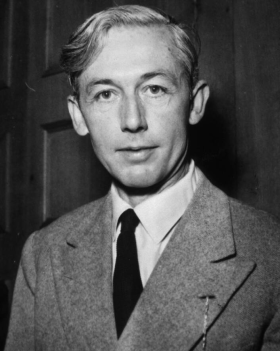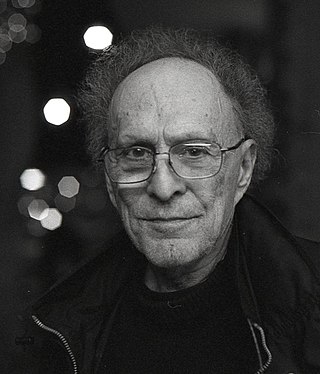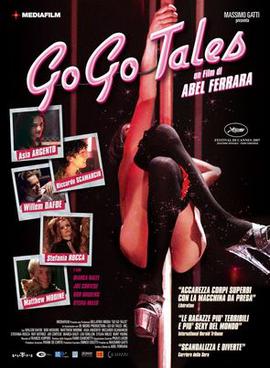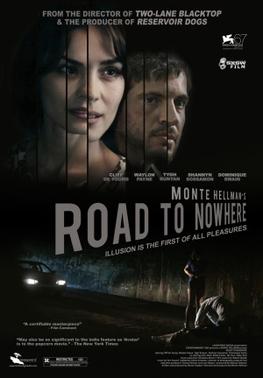Related Research Articles

Robert Bresson was a French film director. Known for his ascetic approach, Bresson contributed notably to the art of cinema; his non-professional actors, ellipses, and sparse use of scoring have led his works to be regarded as preeminent examples of minimalist film. Much of his work is known for being tragic in story and nature.

Abel Ferrara is an American filmmaker, known for the provocative and often controversial content in his movies and his use and redefinition of neo-noir imagery. A long-time independent filmmaker, some of his best known movies include the New York-set, gritty crime thrillers Ms .45 (1981), King of New York (1990), Bad Lieutenant (1992) and The Funeral (1996), chronicling violent crime in urban settings with spiritual overtones.

Two-Lane Blacktop is a 1971 American road movie directed by Monte Hellman, written by Rudy Wurlitzer and starring songwriter James Taylor, the Beach Boys drummer Dennis Wilson, Warren Oates, and Laurie Bird.

The Driller Killer is a 1979 black comedy slasher film directed by Abel Ferrara and starring Ferrara, Carolyn Marz, Baybi Day, and Harry Schultz. The plot concerns Reno Miller, a struggling artist in New York City, turning insane from stress and killing derelicts with a power drill.

The Addiction is a 1995 American vampire horror film directed by Abel Ferrara and written by Nicholas St. John. Starring Lili Taylor, Christopher Walken, Annabella Sciorra, Edie Falco, Paul Calderón, Fredro Starr, Kathryn Erbe, and Michael Imperioli, the film follows a philosophy graduate student who is turned into a vampire after being bitten by a woman during a chance encounter on the streets of New York City. After the attack, she struggles coming to terms with her new lifestyle and begins developing an addiction for human blood. The film was shot in black-and-white and has been considered an allegory about drug addiction and the theological concept of sin.

Monte Hellman was an American film director, producer, writer, and editor. Hellman began his career as an editor's apprentice at ABC TV, and made his directorial debut with the horror film Beast from Haunted Cave (1959), produced by Gene Corman, Roger Corman's brother.

Cockfighter is a 1974 drama film by director Monte Hellman, starring Warren Oates, Harry Dean Stanton and featuring Laurie Bird and Ed Begley, Jr. The screenplay is based on the 1962 novel of the same title by Charles Willeford.
Postmodernist film is a classification for works that articulate the themes and ideas of postmodernism through the medium of cinema. Some of the goals of postmodernist film are to subvert the mainstream conventions of narrative structure and characterization, and to test the audience's suspension of disbelief. Typically, such films also break down the cultural divide between high and low art and often upend typical portrayals of gender, race, class, genre, and time with the goal of creating something that does not abide by traditional narrative expression.
Cinephilia is the term used to refer to a passionate interest in films, film theory, and film criticism. The term is a portmanteau of the words cinema and philia, one of the four ancient Greek words for love. A person with a passionate interest in cinema is called a cinephile, cinemaphile, filmophile, or, informally, a film buff. To a cinephile, a film is often not just a source of entertainment as they see films from a more critical point of view.

Fear City is a 1984 American neo-noir erotic thriller film directed by Abel Ferrara and starring Tom Berenger, Billy Dee Williams, Jack Scalia, and Melanie Griffith. The screenplay was written by longtime Ferrara collaborator Nicholas St. John. It is considered a cult film.

Laurie Bird was an American film actress and photographer. She appeared in three films during the 1970s, two of which were directed by Monte Hellman. She was romantically involved with Hellman and Art Garfunkel, committing suicide in the latter's apartment by taking an overdose of Valium.

Go Go Tales is an independent 2007 film by Abel Ferrara. Ferrara based the film on The Killing of a Chinese Bookie, directed by John Cassavetes. It stars Willem Dafoe as a strip club owner and co-stars Bob Hoskins, Asia Argento and Matthew Modine. Ferrara had the cast improvise much of their lines. He described the film as his "first intentional comedy".

Iguana is a 1988 American adventure crime film directed by Monte Hellman and starring Everett McGill in the main role. It is based on the novel by Spanish author Alberto Vázquez-Figueroa, itself based on the life of a real Irish sailor called Patrick Watkins. The movie was mainly shot on location in Lanzarote. Monte Hellman won Bastone Bianco Award for this movie on the Venice Film Festival in 1988. Iguana premiered in theaters on April 1, 1988, and was released on DVD on January 30, 2001 via Anchor Bay Entertainment. The film ends with the titles "For Warren" as Hellman dedicated the film to his friend Warren Oates.
Target: Harry is a 1969 thriller film directed by Roger Corman.

Road to Nowhere is a 2010 American romance thriller independent film directed by Monte Hellman, written by Steven Gaydos, and starring Cliff De Young, Waylon Payne, Shannyn Sossamon, Tygh Runyan, and Dominique Swain. It was Hellman's first feature film in 21 years, as well as his final feature film before his death in April 2021.
Vulgar auteurism is a movement that emerged in early 2010s cinephilia and film criticism associated with championing or reappraising filmmakers, mostly those working in the horror, sci-fi and action genres and whose work has otherwise received little attention or negative reception in the critical mainstream. It became a controversial topic in the cinephile community following the publication of an article in the Village Voice in 2013 and has been described as "a critical movement committed to assessing the 'unserious' artistry of popcorn cinema with absolute seriousness."

Steven Gaydos is an American screenwriter, songwriter, and journalist.
R. Lance Hill is an American screenwriter and novelist. He is best known for writing the 1989 cult film Road House, as well as the novel and screenplay for The Evil That Men Do. Hill frequently used the pseudonym David Lee Henry while in Hollywood.
9 Lives of a Wet Pussy is a 1976 American pornographic film directed by Abel Ferrara in his feature directorial debut. Written by Nicholas St. John under the pseudonym Nicholas George, the film stars Pauline LaMonde as Pauline, a socialite who details her sexual experiences by mail to a mystic named Gypsy, played by Dominique Santos.
References
- ↑ Anders, Alison (August 22, 2003). "Monte Hellman: His Life and Films". Variety . Retrieved September 24, 2014.
- ↑ "Personal profile at the British Film Institute". Sight & Sound. September 24, 2014. Retrieved September 24, 2014.
- ↑ "Bradlands column at the British Film Institute". Sight & Sound. September 24, 2014. Retrieved September 24, 2014.
- ↑ "Personal profile at Senses of Cinema". Senses of Cinema. September 24, 2014. Retrieved September 24, 2014.
- ↑ "The Spirit of Oldenburg: The 14th Oldenburg Film Festival – Senses of Cinema".
- ↑ David D. (10 March 2011). "Toronto Film Review". Torontofilmreview.blogspot.co.uk. Retrieved 15 November 2014.
- ↑ "Abel Ferrara: The Moral Vision (book review)". Jonathanrosenbaum.net. Archived from the original on 29 November 2014. Retrieved 15 November 2014.
- ↑ "Schrader and The Canyons". james rocarols. 29 August 2013. Retrieved 15 November 2014.
- ↑ "Clear Continuity: When a Critic becomes an Author". Nyfree.net. Archived from the original on 14 October 2014. Retrieved 15 November 2014.